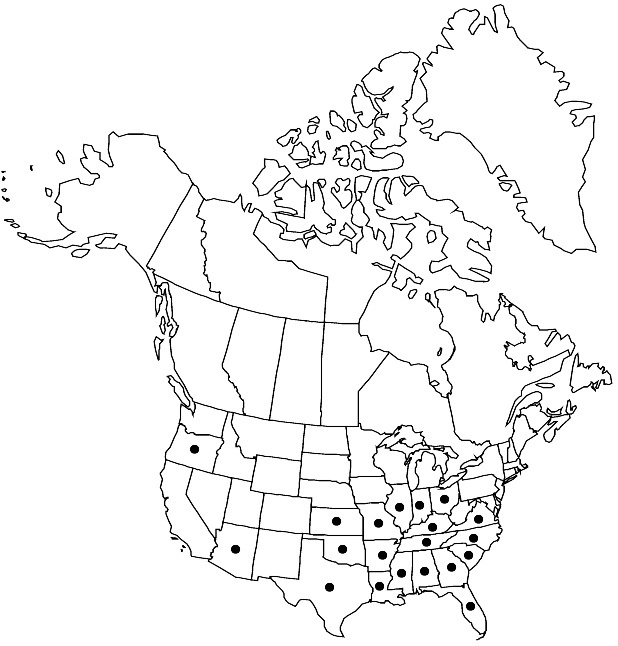Difference between revisions of "Draba brachycarpa"
Fl. N. Amer. 1: 108. 1838.
FNA>Volume Importer |
imported>Volume Importer |
||
| (One intermediate revision by the same user not shown) | |||
| Line 6: | Line 6: | ||
|place=1: 108. 1838 | |place=1: 108. 1838 | ||
|year=1838 | |year=1838 | ||
| + | }} | ||
| + | |special_status={{Treatment/ID/Special_status | ||
| + | |code=E | ||
| + | |label=Endemic | ||
}} | }} | ||
|basionyms= | |basionyms= | ||
| Line 50: | Line 54: | ||
|publication title=Fl. N. Amer. | |publication title=Fl. N. Amer. | ||
|publication year=1838 | |publication year=1838 | ||
| − | |special status= | + | |special status=Endemic |
| − | |source xml=https:// | + | |source xml=https://bitbucket.org/aafc-mbb/fna-data-curation/src/2e0870ddd59836b60bcf96646a41e87ea5a5943a/coarse_grained_fna_xml/V7/V7_380.xml |
|tribe=Brassicaceae tribe Arabideae | |tribe=Brassicaceae tribe Arabideae | ||
|genus=Draba | |genus=Draba | ||
Latest revision as of 22:33, 5 November 2020
Annuals; not scapose. Stems usually branched, rarely unbranched, (0.3–)0.4–1.9(–2.2) dm, pubescent throughout, trichomes sessile, cruciform, 0.2–0.6(–0.8) mm (rays often equal, or those parallel to stem axis longer). Basal leaves not rosulate; petiolate; petiole (to 0.5 cm), not ciliate; blade oblanceolate to obovate, 0.5–2 cm × 2–8 mm, margins entire, surfaces pubescent, trichomes cruciform, 0.2–0.6(–0.8) mm. Cauline leaves (4–)6–11; sessile; blade lanceolate to oblong or linear, margins entire, surfaces pubescent as basal. Racemes (main branch) (20–)25–65(–74)-flowered, ebracteate, elongated in fruit; rachis not flexuous, pubescent as stem. Fruiting pedicels horizontal to divaricate-ascending, straight, (1–)1.5–4(–5) mm, pubescent, trichomes cruciform. Flowers: (late ones cleistogamous, apetalous); sepals (green or pink), oblong, 0.7–1.2(–1.5) mm, pubescent; petals white, spatulate, 2–3 × 0.8–1.1 mm; anthers ovate, 0.15–0.25 mm. Fruits usually elliptic to linear-elliptic, rarely ovate-elliptic, plane, flattened, (2–)2.5–5(–6) × 0.9–1.4(–1.9) mm; valves glabrous; ovules 8–16(–20) per ovary; style 0.05–0.1 mm. Seeds (winged), ovoid, 0.5–0.7 × 0.4–0.5 mm. 2n = 16.
Phenology: Flowering Feb–May.
Habitat: Open woods, cedar glades, pastures and lawns, roadsides, disturbed sites
Elevation: 0-300 m
Distribution

Ala., Ariz., Ark., Fla., Ga., Ill., Ind., Kans., Ky., La., Miss., Mo., N.C., Ohio, Okla., Oreg., S.C., Tenn., Tex., Va.
Discussion
Draba brachycarpa is closely related to D. aprica and the two are sometimes confused. It is readily distinguished by having leaves with sessile (versus stalked) trichomes, glabrous (versus pubescent) fruits, and smaller (0.5–0.7 versus 0.9–1.1 mm) seeds.
The records from Arizona and Oregon are based on old collections, Porter 802 (Devil’s Canyon, 22 Feb 1926, US) and Howell s.n. (near Cobarg, Willamette Valley, 7 Apr 1887, US); it is not known if these records represent introductions or remnants of a previously wider distribution.
Selected References
None.